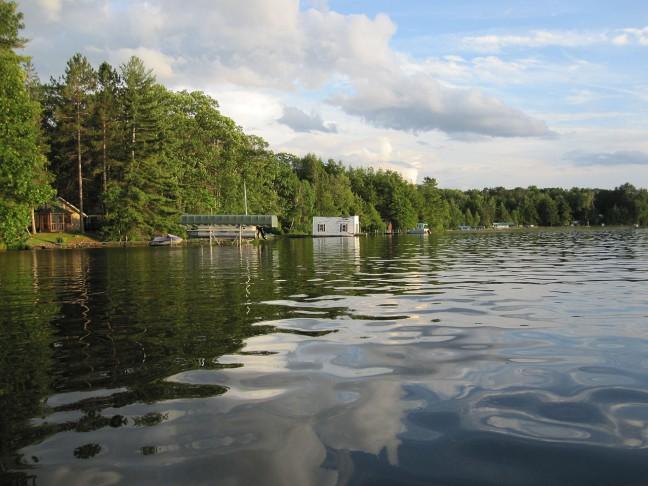The Committee on Natural Resources and Sporting Heritage held a public hearing Wednesday, to discuss several bills on issues regarding lake regulations, trapping and hunting.
The committee also voted to send a bill that would legalize the color blaze pink as a hunting safety color to the Assembly floor. If passed, the color would join the identifiable blaze orange color attributable to hunters.
New legislation could lower hunting age requirement, let hunters wear pink
It addressed a bill proposed by Rep. Rob Swearingen, R- Rhinelander, that would exempt the civil liability of property owners who own structures on navigable waters and wetlands.
According to Swearingen, current law requires property owners of structures such as fish cribs and other coarse wooden objects in Wisconsin wetlands and waterways obtain permits and follow all Department of Natural Resources regulations.
Swearingen said various DNR programs promote the use of these structures to aid fish production and habitat creation, but people are deterred from taking advantage of the programs because of many liabilities they face.
The bill states property owners would be exempt from liabilities if the structures on their property promote wildlife growth, protection and restoration.
“The goal of the legislation is to improve fish and habitat by removing civil liabilities from property owners placing certain structures in navigable water and wetlands,” Swearingen said.
The committee also looked at the mentorship trapping program and regulations.
Currently, the law prohibits individuals without a permit from trapping and from removing a catch from someone else’s trap.
The bill proposed by Rep. Romaine Quinn, R-Rice Lake, would create a trapping mentorship program for individuals without trapper education certificates to trap alongside a qualified mentor. The only animals they could not trap include bobcats, fishers, otters and wolves.
Patricia Randolph, Wildlife Ethic advocate, argues against the bill, suggesting the mentorship program does not make young trappers more professional. She said instructing children before they have a permit and a moral sense to trap animals is irresponsible.
“Teach children to respect life,” Randolph said. “It is not ethical to teach children about bludgeoning animals in traps. This is not a way to connect with nature.”
Aloze Prudlick, Jr., Wisconsin Trapping Association vice president, supports the bill, He said only a landowner or a landowner’s family members are legally allowed to set traps on their property, so by creating a mentorship program, it could encourage families to trap together.
According to Prudlick, the mentors are certified so they are aware of the ideologies behind trapping and will promote moral trapping when working with the mentees.
“People have been taking their kids along while trapping for a long time and the children want to set traps,” Prudlick said. “This would be a great initiative to start kids young, legally.”
The legislation also introduces exceptions to allow someone other than a trap’s owner to extract its catch. Under the bill an individual can take someone else’s trap or its contents if that person gives him permission to do so. Bobcats, fishers, otters and wolves are the only exceptions.














